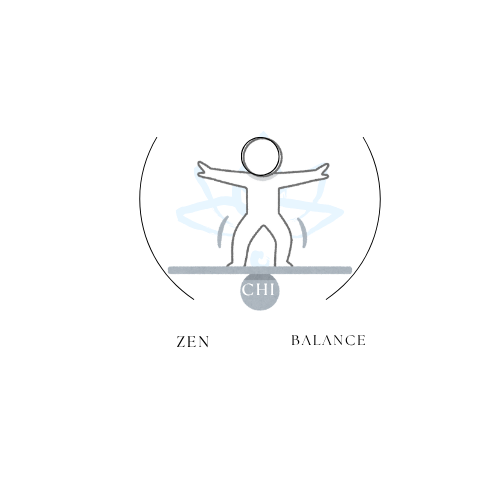
Spiritual Awakening Signs Stages and How to Begin Your Path
Share
Updated on: 2025-10-22
Table of Contents
- Spiritual Awakening: A Gentle Introduction to Awareness
- Signs of a Spiritual Awakening and How to Navigate Them
- Stages of Spiritual Awakening and Practical Steps for Beginners
- How-To Steps for Spiritual Awakening
- Navigating Kundalini Awakening and the Dark Night of the Soul
- FAQ: Spiritual Awakening Questions Answered
Spiritual Awakening: A Gentle Introduction to Awareness
Many people describe spiritual awakening as a quiet yet profound shift in perception. In simple terms, it is a growing awareness of your inner life and how it connects with the world around you. This awakening of consciousness may arrive gradually or feel like a sudden insight. Some experience it as a path toward spiritual enlightenment, while others see it as a practical change in daily choices. However it unfolds, spiritual awakening often invites a kinder, more present way of living.
Because this journey can be personal, it helps to move at a pace that feels respectful to your needs. You might explore resources, read, journal, or visit mindful communities. If you prefer a calm starting point, you may find thoughtful introductions on the Zen Chi Balance site, where you can learn at your own speed and return whenever you like.
What Is Spiritual Awakening?
Spiritual awakening is often described as increased clarity about who you are beneath roles, habits, and expectations. It can bring a shift from constant mental chatter to a steadier, more present awareness. This does not require adopting a specific belief system. Rather, it involves noticing life with fresh attention and responding with care. Some people experience a gentle sense of connection; others simply feel more grounded and honest with themselves. Over time, small moments of insight can add up to meaningful change.
Signs of a Spiritual Awakening and How to Navigate Them
Every person’s experience is different, yet there are signs of a spiritual awakening that many people recognize. If you notice any of these, you are not alone. It may help to observe with curiosity and proceed steadily.
Emotional and Mood Shifts
- Greater sensitivity: You may feel emotions more vividly. If this happens, gentle routines like journaling or time in nature can offer balance.
- Release of old patterns: Long-held habits or reactions may soften. Consider noting changes in a journal to track what helps.
- Periods of unease: Uncertainty or restlessness can appear as you reconsider priorities. Kindly give yourself time and space.
Heightened Intuition and Insight
- Quiet inner nudges: You might sense a clear “yes” or “no” more often. It can be useful to pause before acting and check in with your values.
- Fresh perspectives: Problems may feel different when viewed with a wider lens. You may notice new options or simpler paths forward.
Values, Purpose, and Relationships
- Refined priorities: What truly matters may feel clearer. This can inspire small adjustments to your schedule, conversations, or commitments.
- Relationship alignment: You may wish for deeper honesty or gentler boundaries. Patience and respectful communication can help.
Body Awareness and Sensations
- Subtle sensations: Some report warmth, tingling, or changes in breath awareness. If you notice such shifts, moving slowly and staying hydrated may feel supportive.
- Energy levels: There may be times of increased vitality or a need for more rest. Balancing activity with quiet time can be comforting.
These experiences do not have to be dramatic. Small, steady steps tend to be kinder to the nervous system and easier to integrate. If you prefer reading thoughtfully curated insights, the Blog may be a helpful companion.
Stages of Spiritual Awakening and Practical Steps for Beginners
While not everyone follows a single map, many people describe recognizable stages of spiritual awakening. Seeing a broad pattern can reduce confusion and offer reassurance.
Stage 1: Curiosity and Questioning
At first, you may feel curious about meaning, purpose, or the nature of awareness. You might explore books, podcasts, or simple practices. Practical step: choose one small daily ritual, such as a two-minute pause before starting your day. Consistency matters more than duration.
Stage 2: Deepening Awareness and Integration
As insight grows, life can feel both clearer and more sensitive. You might refine your habits, create gentle boundaries, and stay close to what helps you feel balanced. Practical step: keep a brief reflection log. One or two sentences each evening can reveal patterns and progress.
Stage 3: Living Your Insight
Over time, your inner clarity can inform everyday choices. Kindness may guide your communication and your schedule. Practical step: choose one value (for example, presence or patience) and let it shape a single daily action, such as how you listen during a conversation.
If you enjoy learning about a brand’s values before engaging further, you are welcome to visit the About page for a concise overview of guiding principles.
How-To Steps for Spiritual Awakening
The steps below are simple, clear, and designed to be paced gently. Please adapt them to your needs and comfort.
- Create a calm starting point: Choose a consistent time each day to sit quietly for two to five minutes. Focus on natural breathing. If thoughts arise, notice them and return to breath with kindness.
- Set a friendly intention: At the start of your day, use one sentence such as “May I move with awareness.” Revisit it when you transition between tasks.
- Use micro-pauses: Insert several ten-second pauses during the day. Relax your shoulders, soften your jaw, and feel your feet on the ground.
- Journal in brief lines: Write one thing you noticed, one feeling you held gently, and one action that aligned with your values. Keep it simple and consistent.
- Refine your inputs: Choose content and conversations that soothe and clarify. Reducing noise can make awareness easier to notice.
- Practice kind boundaries: When you feel overextended, consider a thoughtful “not now” or a smaller commitment. Clear agreements support steady growth.
- Revisit and adjust: Each week, reflect on what supported you most. Keep the helpful pieces and let go of what felt forced.
Navigating Kundalini Awakening and the Dark Night of the Soul
Some people speak about kundalini awakening and the dark night of the soul within the broader context of spiritual awakening. The following notes are offered in a calm, informational spirit, with respect for each person’s background and comfort level.
Kundalini Awakening: Context and Care
Kundalini awakening is often described as a rise in inner energy or awareness. Experiences vary widely. If your sensitivity increases, you may wish to move slowly, create a simple routine, and maintain supportive daily habits such as regular rest and nourishing activities. Taking measured steps can help you feel steadier as you learn what is right for you.
The Dark Night of the Soul: Meaning and Support
The phrase “dark night of the soul” often refers to a period when meaning feels distant and familiar comforts fade. Many people find that this phase, while difficult, can encourage honest reflection and renewed simplicity. Gentle structure can be helpful: basic routines, short walks, and calm conversations with trusted companions. If you would like to reach out with questions, you may use the Contact page to share feedback or request guidance on future topics.
FAQ: Spiritual Awakening Questions Answered
What are the common signs and symptoms of a spiritual awakening?
People often notice clearer self-awareness, changes in values, heightened intuition, and a desire for simplicity. Emotional sensitivity can increase, and old habits may naturally fall away. Physical cues like changes in breath awareness or subtle sensations are also reported. These experiences vary, and it is reasonable to proceed at a pace that feels stable. The section above on signs offers examples and calm ways to navigate them.
How can I start or support my spiritual awakening journey?
Begin with small, consistent steps. A short daily pause, a simple intention, and brief journaling can support steady awareness. Reducing noise in your day and practicing kind boundaries also help. You can find additional reflections and practical notes on the site’s Blog whenever you wish to explore at your own pace.
Is spiritual awakening the same as spiritual enlightenment?
They are related ideas, yet many people use them differently. Spiritual awakening often refers to the ongoing process of noticing awareness and living with more clarity, while spiritual enlightenment is sometimes described as a mature or stable realization. You do not need to adopt exact definitions. It may be kinder to focus on your lived experience and what supports balance and integrity right now.
What if I feel overwhelmed during the awakening of consciousness?
Overwhelm can happen. It may help to reduce effort, return to basic routines, and favor gentle practices like micro-pauses and brief journaling. You are welcome to learn more about values and intentions on the About page to see if the approach resonates with your needs.

I'm a passionate curator at Zen Chi Balance, dedicated to spreading calm, harmony, and mindful living through faith-inspired lifestyle products. I help craft meaningful experiences for our global community of mindful shoppers.
The content provided is for informational and inspirational purposes only. It is intended to encourage personal growth, mindfulness, and balance in daily life. Zen Chi Balance does not provide medical, legal, or professional advice. For specific concerns or guidance, please consult a qualified professional. Visit us at www.zenchibalance.com for more inspiration and resources.
